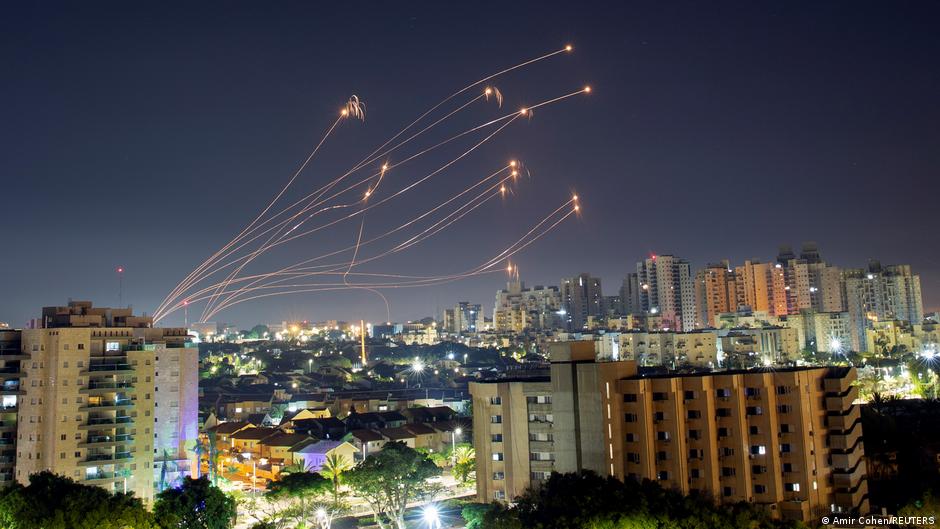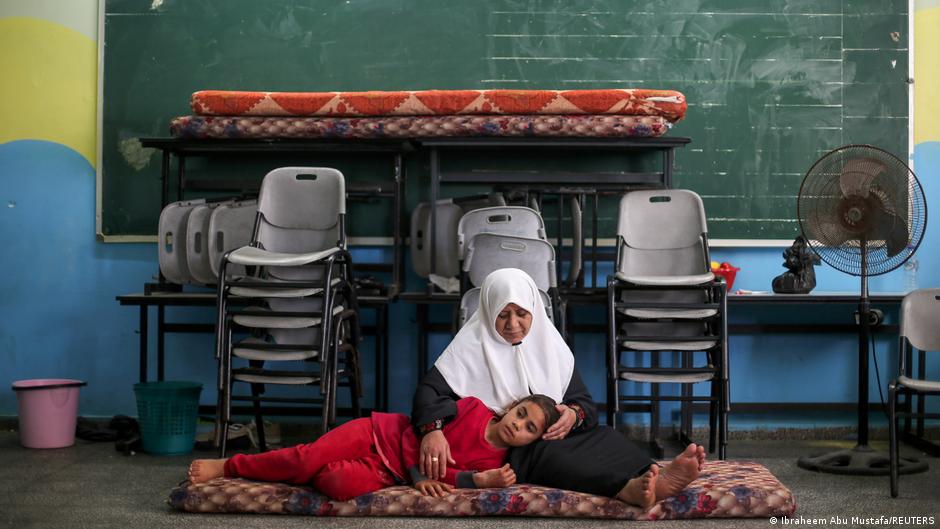Israeli-Hamas hostilities: same old story, or is it?

It had almost been forgotten in recent years – the Middle East conflict. On the outside, it seemed as though nothing had changed, although the situation of the Palestinians worsened with each passing year. But that news rarely found its way into the headlines. Even when former U.S. President Donald Trump and his son-in-law Jared Kushner celebrated last year what they called a great new peace initiative – the normalisation of Israel's relations with the United Arab Emirates and Bahrain they themselves had initiated – the Palestinians were not even extras in the script.
In recent days, however, the international community has come to realise that the main issue is not what kind of relationship Israel has with a few Gulf States. The core of the problem remains the conflict with the Palestinians. And they are now venting their simmering discontent and frustration with the status quo in what we've witnessed over the last few days and hours.
It's the same thing over and over again, some might say. But the latest unrest has an entirely new quality. Up until now, the bone of contention has always been Gaza, cut off from the rest of the world, or the rights of the Palestinians in East Jerusalem, or the Palestinians living in the West Bank under Israeli occupation. Now, however, all Palestinians, including those living inside Israel, are joining together in protests that display an unprecedented vehemence. That is something new.
The uprising of the 48-Arabs
The explosive impact unleashed by these newcomers to the uprising, the so-called 48-Arabs, i.e., those Palestinians who live within Israeli territory and who make up no less than one fifth of Israel's citizens, has become clear from the lynchings and mutual chase scenes we have seen in recent days.

The borders between the Israeli-occupied territories and the state territory of Israel are blurring these days. For the first time, there is even talk of a possible civil war scenario. This may be overblown, but the conflict with the Palestinians has certainly come home to all Israelis this week. With the entry of the 48-Arabs into this conflict, the Palestinian perspective is also shifting. This is not about a two-state solution or about territory, but about equal rights as citizens in an Israeli state. That is something new.
What is also new is that the protests in East Jerusalem are no longer associated with the old Palestinian politicians and factions such as Hamas and Fatah. The young people taking to the streets in East Jerusalem represent a whole new generation, fed up not only with daily discrimination by Israel but also utterly disillusioned with their own political leadership. Whether the leaders are called Hamas or Mahmoud Abbas.
The world's most expensive missiles
Not that we are ignoring here the missiles being fired by the Hamas. When Israeli police stormed the Al-Aqsa Mosque with tear gas and sound grenades, creating devastating images that will burn themselves into collective Arab memory, Hamas saw its chance to jump on the bandwagon of the new Palestinian protest movement. Over a thousand missiles were fired towards Israel, terrorising the population and costing innocent civilian lives.
These Hamas missiles had a double effect. They offered Israeli Prime Minister Benjamin Netanyahu the opportunity to drag the conflict to the military level, where he always has the advantage. And they diverted international attention from the forced evictions in East Jerusalem, while allowing Israel to invoke its right to self-defence.
Someone in Gaza once said: "Hamas has the most expensive missiles in the world". Asked in bewilderment what he meant, he replied: "Every Hamas missile is followed by the destruction of our infrastructure and our lives, that's why we have the most expensive missiles." The last few days in Gaza prove him right once again. In the Gaza Strip, which is being constantly bombarded by Israel, a horror film is playing out from which there is no escape and no shelter for the inhabitants.
And the international community has responded by once again conforming to Hamas logic. When the Palestinians in East Jerusalem were forcibly evicted and terrorised by settlers, everyone merely looked on with indifference, only becoming alarmed when the first Hamas rockets flew from Gaza into Israel. That is arguably the saddest thing about this conflict: the Palestinians are only noticed internationally when they cross the threshold into violence.
New solidarity among Palestinians
The rocket fire and Israeli bombardment will probably end in a few days after American and Egyptian mediation, as we have seen so many times before. What remains is the much bigger challenge for Israel of confronting the Palestinian protests inside Israel. And for that there is no mediation at all. This is the rawest nerve in the Middle East conflict.
But something else has also changed. We are witnessing a shift in the Palestinian discourse and a new generation of Palestinians who are eloquently carving out a space for themselves in the international perception of the conflict. This is a discourse that points away from the issues of territory and the two-state solution and towards equal rights between Israelis and Palestinians. And here, too, the old lines are blurring, the line between Palestinians living under occupation in the West Bank, those living in East Jerusalem with its unresolved status and fighting forced eviction, and others living in isolated Gaza or inside Israel as second-class citizens.
The joint Palestinian appeal can be summed up with a succinct: "We Palestinians have rights too." They are comparing themselves to the Civil Rights Movement in the USA. They are comparing themselves to the Black Lives Matter movement, and turning their struggle into a Palestinian Lives Matter movement. Instead of the word "occupation", the word "apartheid" is now gaining currency among Palestinians and even being used by international human rights organisations such as Human Rights Watch. That is something new.
What is old, by contrast, is the international reaction to the events of recent days. We are hearing the same old rhetoric stripped of content, which is not really about resolving the conflict. Before that happens, a consensus would first have to be formed regarding the realities on the ground. Until that happens, there will never be a real solution. Taking sides and paying lip service to the two-state solution will not resolve this conflict. Only when the issue of Israel's security is linked to the facts of the Israeli occupation of the West Bank, the disastrous situation in Gaza, the discrimination against Palestinians inside Israel, and the gradual expulsion of Palestinians from East Jerusalem can we begin to talk about a real solution.
We can bury our heads in the Middle Eastern sand, and in recent years that has worked out well because things have remained quiet, at least when seen from the outside. But in reality, the situation was never sustainable. And it doesn't matter whether you define yourself as pro-Israel or pro-Palestinian. The last few days have made it abundantly clear to everyone that the status quo is not the solution: it is the problem.
© Qantara.de 2021
Translated from the German by Jennifer Taylor
